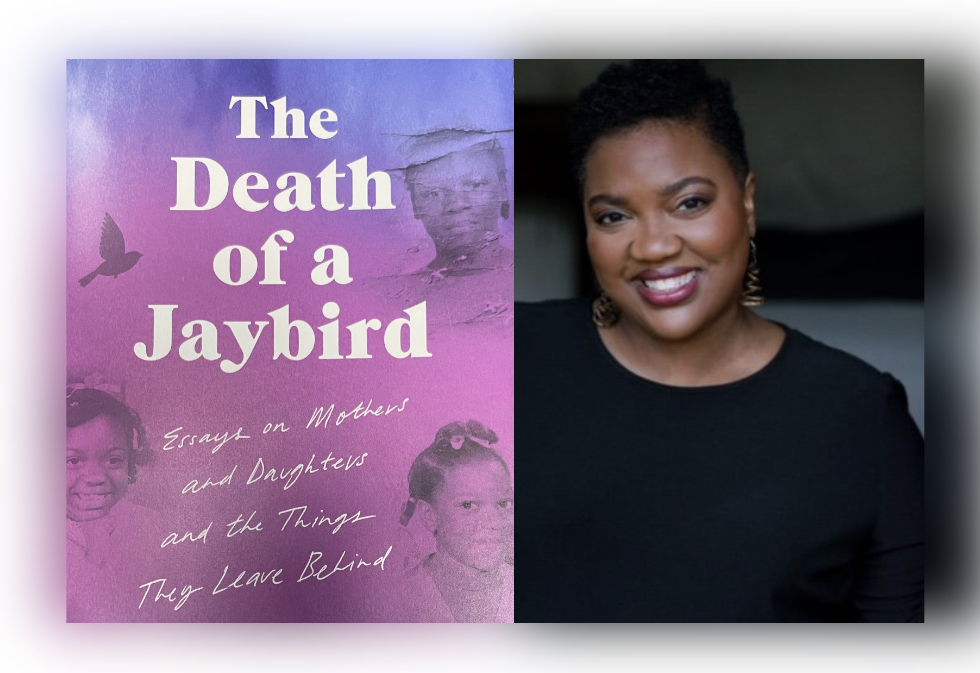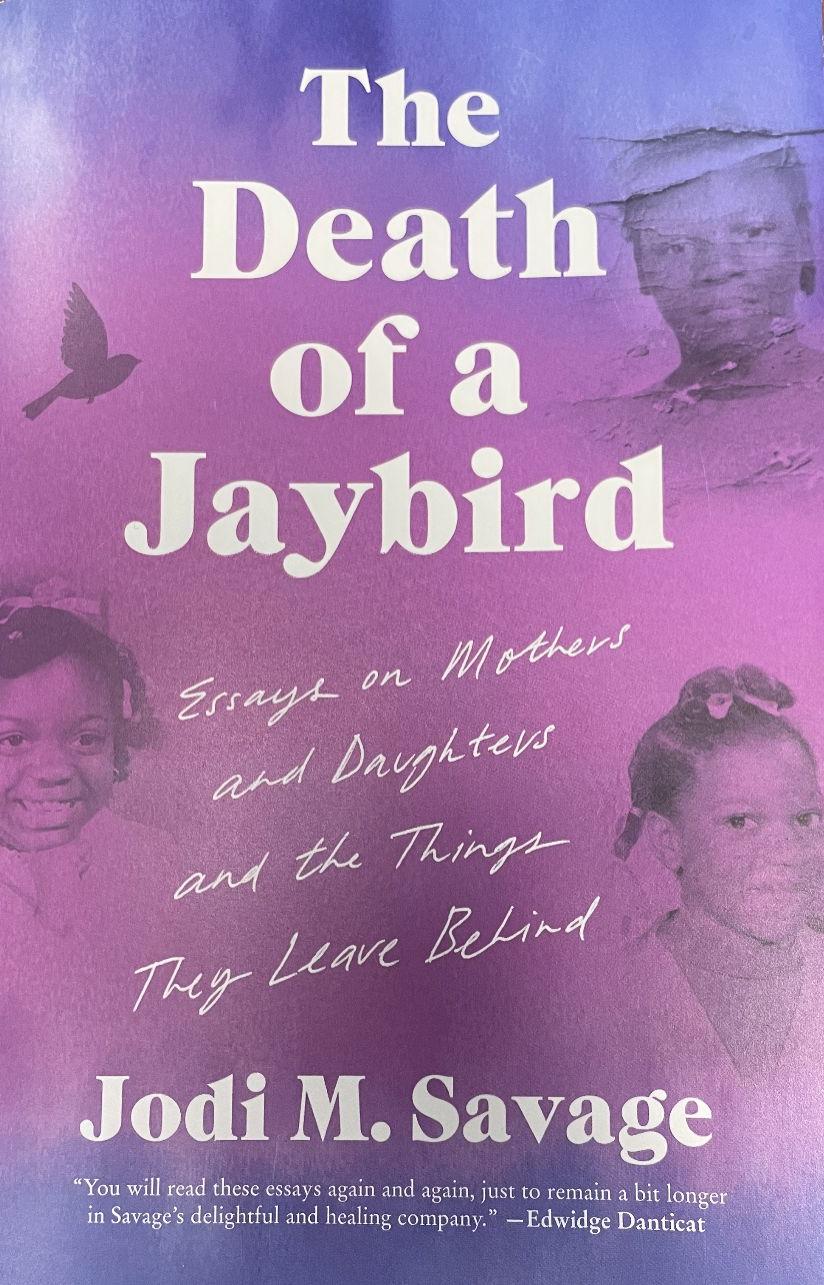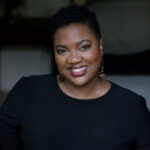
October 9, 2024
Mother And Daughter Share Breast Cancer Diagnosis In ‘The Death Of A Jaybird’
Originally published Oct. 31, 2023
Updated Oct. 9, 2024
Jodi M. Savage is an author who happens to be a breast cancer survivor. Her memoir, The Death of a Jaybird: Essays on Mothers and Daughters and the Things They Leave Behind, debuts Nov. 14 with accolades and praise from Edwidge Danticat, who assures readers that they “will read these essays again and again just to remain a bit longer in Savage’s delightful and healing company.”
While healing denotes that Savage is working through her situations—in this case, breast cancer—following the author’s words throughout her diagnosis and treatment is arresting. Not only does Savage discover a malignant mass embedded in her breast tissue, but she is simultaneously experiencing the breast cancer walk of her mother, Cheryl, who is quite the character. Savage chronicles both her and Cheryl’s breast cancer journey in chapter 7 of her forthcoming book in a smart, humorous, and Black-ass way that will either have readers shed a kazillion teardrops—or have them doubled over with gut-busting laughter. BLACK ENTERPRISE obtained an exclusive excerpt that won’t disappoint.

Tuesday, November 24, 2020
Two days before Thanksgiving, my friends Jennifer and Joella drove me to a Manhattan outpatient cancer center to have my breast surgery. My surgeon was going to perform a lumpectomy—she was going to remove the tumor in my left breast and several lymph nodes under my arm. Cheryl called me that morning while we were in the car on our way to the city. I put her on speakerphone.
“Hey chile, I’m on my way to surgery,” I told her.
“I have an appointment with my oncologist today. What kind of cancer do you have? So I can tell my doctor,” Cheryl said.
We’d previously discussed needing to compare our breast cancers so that I’d have more information about breast cancer in our family for my genetic counseling.
“I have invasive ductal carcinoma that’s estrogen and progesterone positive,” I replied.
“You have what?” she asked.
“Invasive ductal carcinoma. That means the cancer started in my milk duct,” I explained.
“The milk duct?” she asked.
“What doesn’t she understand? The milk or the duct?” Jennifer asked as Joella and I laughed.
“You don’t know what a milk duct is? Didn’t you give birth to two whole kids?” I asked Cheryl. She laughed.
She later told me that she had infiltrating ductal carcinoma that was estrogen receptor-positive. I learned that “invasive” and “infiltrating” are used interchangeably and that we had the same type of breast cancer. I’d spent my life trying to be my mother’s opposite in every way—not wanting to repeat her mistakes or live her life of addiction. I’d prided myself on being responsible and “doing life right.” Although genetic testing revealed that I had not inherited the BRCA1 orBRCA2 gene mutation that makes women more likely to develop breast cancer, I was still my mother’s child down to the malignant, molecular level.
“Lemme send you some pictures of me,” she said.
In the pictures, she looked like she was headed to the club or a night out with the girls instead of an oncology appointment. Her short, salt-and-pepper hair was slicked back, and her midnight blue glasses were perched on her head. She wore blue skinny jeans and a black crop top that stopped just beneath her breast. The accent piece of her outfit was the orange blouse she wore over her crop top—a sheer, puffy number made of tulle. It had a deep cut in the front, revealing her black top underneath, and a thick sash around her waist that flared out into ruffles. Her eyelashes, eyeshadow, and lipstick were perfectly applied, she wore stud earrings, and two necklaces. She did not dress like your average sixty-year-old.
“Go head, sexy momma!” I told her. “Who you lookin’ sexy for?” “I gotta look sexy for my oncologist,” she replied.
Her outfits were starkly different from my cancer treatment uniform. The plaid button-down shirts I wore for my medical appointments were easy to get out of when doctors needed to examine my breasts or I needed to undergo imaging tests. A few months later, while I was undergoing radiation treatments, my friend Janine saw me in my daily uniform of plaid shirt, leggings, and pink loafers.
“You gotta start dressing better or they’re gonna think you’re homeless and give you bad medical treatment,” she said.
I didn’t look completely homeless. I applied lotion so I wouldn’t be ashy, aluminum-free deodorant so I wouldn’t be funky, and combed my hair. I was cute from the neck up.
Friday, February 12, 2021
“Call Justin,” Cheryl told me.
She was in hospice and wanted me to call my father on three-way.
“Okay. Hold on.”
“Hey, Justin Savage,” I said when he answered the phone.
“Hey, Jodi Savage! How ya doin’?”
This is how we greet one another—by our first and last names. For starters, “Savage” is a cool name. This is also our way of bypassing the awkwardness of me not calling him Dad or Daddy or figuring out what else to call him.
“I’m doin’ alright. Cheryl is in hospice and wants to talk to ya. She’s on the other line. Hold on.”
“Okaaaaay,” he said in a what-the-hell-is-going-on way. “Cheryl, you there?”
“Yup.”
“Justin, you on?” “Uh huh.”
“Hey, Cheryl, how ya doin’?” my father asked.
Once all three of us were connected, we engaged in the awkward, halting small talk of groups of people who do not normally speak to one another. This conversation was our attempt at normalcy—as if my parents had raised me together as a happily married couple. As if my mother was not in hospice. Still, I laughed and smiled a wide goofy smile as I sat on my bed talking to them.
“What happened to you?” Cheryl asked my father.
“I called and you ain’t neva pickup the phone.”
“Oh, I gotta tell you bout that. We’ll talk about that later,” he responded, clearly not wanting me to know what was going on.
My mother had told me she was going to start hanging out with my father. Perhaps they’d planned to meet, and he’d stood her up.
“You get disability? I need some money,” my mother told him.
“No. I’m a stripper. I make too much money to get disability.”
He said it so smoothly that I almost believed him.
“Nigga, I’m yo wife,” she told him.
“I know, but ya left me Cheryl,” he responded.
Although still legally married, they hadn’t been together since I was a baby.
“God told me to tell you to put them Heinekens down,” Cheryl said.
We did not need divine intervention to know my father should cut down on his alcohol consumption. I guess Cheryl thought he might actually do it if he thought God had delivered a special message just for him.
“I stopped drinking a long time ago,” he responded.
I had my doubts but kept quiet. Who was I to bust up our happy family time?
“You did?” Cheryl asked. “Yeah.”
“Justin, you want some pocketbook?” she asked him.
This is where the conversation went left. “Pocketbook” was a euphemism for vagina, which she’d used to make money during her days as a prostitute. She took great pride in her pocketbook. She once told me, “I ain’t finna use up my pocketbook. My Gucci, my Chanel, my Louis Vuitton. I got name-brand pocketbook.”
I was afraid of how my father would respond to my mother’s pocketbook offering.
“But you gotta pay for it, tho. I don’t give out nothing for free,” she told my father.
“Cheryl, you know we don’t do that nomo. Don’t talk that way,” Justin said.
“Jodi, I ain’t mean for you to hear all that,” he added.
“I ain’t mean to hear all that either,” I responded. I was embarrassed enough for the three of us.
“We gotta get married again,” my mother told him. “Cheryl, we still married.”
“Oh.”
Before we got off the phone, Justin made plans to visit her in hospice.
“Call before you come tho. She’s going home soon,” I told him.
Cheryl had worn out her welcome at the hospice and wouldn’t let the other patients rest—and die—in peace. The nurses heavily sedated her, causing her to sleep through meals. When she woke up, she’d be hungry and there was usually no food around. The staff would bring her a plate, but the food would be cold. Then she’d have a temper tantrum by throwing things, cussing, and yelling. Sometimes she took her tantrum on the road and showed out in the hallway. The hospice would call my brother. He would then call my mother to ask why she was giving everyone such a hard time.
She and I joked about there never being any food around or a microwave in her hospice unit.
“Folks come to hospice to die. Dead folks don’t make noise,” I said. “Exactly. Dead folks don’t eat either,” she replied.
“And dead folks don’t ask for hot food.”
That evening, while my mother was in hospice and I was in my third week of radiation therapy, was the first time in my forty-two years that I’d ever spoken to both of my parents at the same time. We were making new, happy memories. Their conversation was Blackity Black, hilarious, carefree, vulgar, straight ignant, incoherent at times, loving—the banter of two old friends who shared a child and a history without judgment. Cheryl had had enough bad customer service at the hospice and was going home. Surely, she wasn’t at death’s door. But even in that moment, I knew that conversation with my parents was special, something I would look back on and savor …
Breast cancer impacts Black women at overwhelming rates. The Breast Cancer Prevention Partners list a “31% breast cancer mortality rate” for African American women. When juxtaposed with white women diagnosed with breast cancer, the mortality rate is almost double for Black women at 42% higher.
You can get your hands on The Death of a Jaybird: Essays on Mothers and Daughters and the Things They Leave Behind Black-owned online retailers and and at local Black-owned bookstores.
Excerpted from THE DEATH OF A JAYBIRD by Jodi M. Savage. Copyright © 2023. Available from Harper Perennial, an imprint of HarperCollins Publishers.

Jodi M. Savage is the author of The Death of a Jaybird: Essays on Mothers and Daughters and the Things They Leave Behind (forthcoming from Harper Perennial on November 14, 2023). She is a writer and attorney in New York City. Her essays have appeared in The Huffington Post, Catapult, Kweli Journal, the VIDA Review, Women’s Studies Quarterly, and other places. Jodi’s essays have been nominated for a Pushcart Prize twice, Best of the Net 2020, and listed as a notable essay in The Best American Essays 2019. Jodi also co-hosted “The Work Rundown,” a podcast about the experiences of Black women in the workplace.